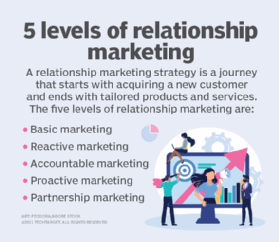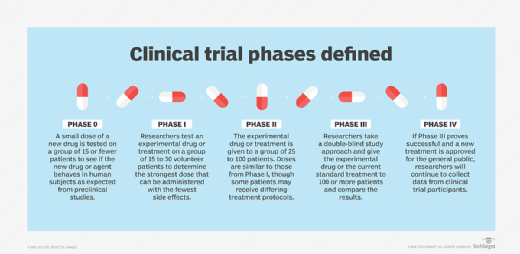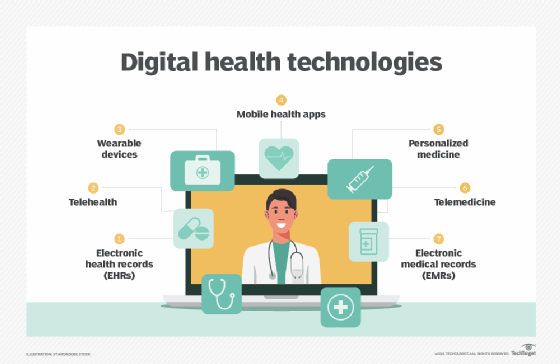pharmaceutical detailing
What is pharmaceutical detailing?
Pharmaceutical detailing is a 1:1 marketing technique pharmaceutical companies use to educate a physician about a vendor's products, hoping that the physician will prescribe the company's products more often.
Although this practice is controversial, many drug companies spend billions of dollars a year on this legal tactic.

What is the goal of pharmaceutical detailing?
Pharmaceutical detailing aims to influence the prescribing behavior and increase the market share for a specific drug. Pharmaceutical sales representatives are trained to educate individual physicians and health care professionals through sales calls.
The benefits of pharmaceutical detailing
Pharmaceutical detailing has a number of benefits for the pharmaceutical company.
Increased sales. Pharmaceutical detailing can result in increased pharmaceutical sales because a pharmaceutical sales representative is able to provide information about the product that may influence the physician to prescribe the product.
Compliance with FDA regulations. Detailing helps pharmaceutical companies comply with FDA regulations by providing information about products that must be included on the label.
Improved patient outcomes. Detailing also provides information about a product that may improve patient outcomes. This includes information about dosing, side effects and interactions with other medications.
Support for clinical research. Detailing supports clinical research by disseminating information about new products and old products that are being studied.
Improved physician knowledge. Detailing improves physician knowledge by providing concise, accurate information about a product.

The disadvantages of pharmaceutical detailing
There are also several disadvantages to pharmaceutical detailing.
Cost. Pharmaceutical detailing is expensive and can be a major expense for pharmaceutical companies as they must provide training and cover travel expenses for reps who go out and attempt to promote a particular product.
Influence of sales representatives. Some physicians feel that the information provided by pharmaceutical representatives is biased because of their relationship with the pharmaceutical company.
Conflicting data. Pharmaceutical representatives may provide conflicting data to physicians, making it difficult for the physician to make an informed decision about a product.
Ineffective at times. Pharmaceutical detailing can be ineffective at times if the sales representative is not knowledgeable about the product or if the physician is not interested in learning about the product.
Misuse of data. Pharmaceutical representatives may misuse data in their attempt to promote a particular product, resulting in inaccurate information being provided to physicians. This can have serious repercussions including both compliance violations, patient harm, lawsuits and reputational damage.
Pharmaceutical detailing restrictions
Due to the controversial nature of traditional pharmaceutical detailing and the belief that these aggressive marketing attempts can lead to an adverse impact on decision-making by physicians, the American Medical Association (AMA) has restricted the number of meetings between physicians and reps of pharmaceutical companies.
Many states, including Vermont, have mandated reporting requirements to discourage pharmaceutical detailing. Vermont now bans most gifts and requires that all free samples of pharmaceutical products and medical devices be reported to the State Attorney General's Office.
Along with this, academic medical centers across the U.S. have restricted the interaction between sales reps and their physicians to limit the impact of marketing on prescribing patterns.

New forms of pharmaceutical detailing
Additionally, some new types of pharmaceutical detailing have been derived in recent years.
Academic detailing
Canada, Australia and some U.S. states like North Carolina and Maine have initiated a program called academic detailing in which health care professionals, physicians and pharmacists educate prescribers about new prescriptions.
This program differs from traditional pharmaceutical detailing because educators have no financial incentive from the pharmaceutical industry.
In traditional detailing, sales representatives of the manufacturer execute the process with the intent to sell more of the product. Academic detailing strives to be as neutral as possible when talking to physicians to eliminate any conflict of interest.
E-detailing
In another variation of detailing, e-detailing, pharmaceutical representatives use the internet to build one-to-one relationships with physicians through social networking and other digital channels.
E-detailing has several benefits, including improved access to accurate and up-to-date information on a product and increased engagement between parties.
Both of these newer strategies have led to a reduction in the sales force of pharma companies.
With its biased nature and restrictions in the U.S., these newer strategies are likely to continue to replace pharmaceutical detailing in the future.
See also: relationship marketing







